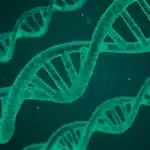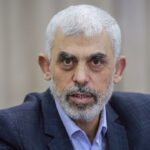Gerald Edelman (1 July 1929 – 17 May 2014) was a renowned American biologist and immunologist. He dedicated his life to the study of the immune system and the brain, making significant contributions to both fields of study. He was awarded the Nobel Prize in Physiology or Medicine in 1972.
Early Life And Education
Gerald Maurice Edelman was born on July 1, 1929, in Ozone Park, Queens, New York. He was the son of Edward Edelman, a physician, and Anna Edelman, who worked in the insurance industry. Edelman’s early education took place in public schools in New York, and he graduated from John Adams High School. He displayed a talent for violin, but ultimately chose to pursue a career in medical research over music. For his higher education, Edelman attended Ursinus College, where he graduated magna cum laude with a Bachelor of Science in 1950. He then earned his M.D. from the University of Pennsylvania School of Medicine in 1954.
Career And Achievements
Gerald Edelman was a distinguished American biologist whose groundbreaking work on the immune system earned him the Nobel Prize in Physiology or Medicine in 1972, shared with Rodney Robert Porter. His military service as a physician in Paris sparked his interest in immunology, which he pursued at the Rockefeller Institute, earning a Ph.D. in 1960. Edelman’s Nobel Prize-winning research unveiled the structure of antibody molecules, a pivotal discovery in immunology. His intellectual journey didn’t stop there; he ventured into neuroscience and philosophy of mind, exploring the evolution of the immune system and its parallels with brain development. Edelman’s contributions were recognized with numerous awards, including the Eli Lilly Award in Biological Chemistry (1965) and membership in prestigious societies like the American Academy of Arts and Sciences (1968) and the National Academy of Sciences (1969). His legacy extends beyond his scientific achievements, as he was also known for his wide-ranging intellect and lifelong interest in music. Gerald Edelman’s career was marked by a relentless pursuit of knowledge, crossing disciplinary boundaries and contributing profoundly to our understanding of biology and the mind. <sub>References: , </sub>
Notable Events And Milestones
Gerald Edelman journey began with a deep curiosity about the natural world, leading him to pursue a medical degree from the University of Pennsylvania in 1954. Edelman’s service in the Army Medical Corps in Paris further honed his interest in the immune system, setting the stage for his groundbreaking work upon returning to the United States. At Rockefeller Institute, he earned a Ph.D. in physical chemistry and embarked on the research that would define his career. Edelman’s elucidation of the structure of antibodies, for which he shared the Nobel Prize in Physiology or Medicine in 1972 with Rodney Porter, revolutionized our understanding of the immune system. This discovery had profound implications for medical research, paving the way for advancements in disease diagnosis and treatment. His intellectual journey did not stop there; Edelman’s insatiable curiosity drove him to explore the mysteries of the brain. In the 1970s, he discovered cell adhesion molecules (CAMs), which play a crucial role in the development of the nervous system.
His theory of neuronal group selection, also known as neural Darwinism, provided a new framework for understanding the brain’s development and function. Edelman’s contributions extended beyond the laboratory; he was a passionate advocate for science education and the public understanding of science. His books, such as “Bright Air, Brilliant Fire: On the Matter of the Mind” and “Wider than the Sky: The Phenomenal Gift of Consciousness,” brought complex scientific ideas to a broader audience, fostering a greater appreciation for the wonders of the human mind.
Edelman’s legacy is multifaceted, reflecting his diverse interests and achievements. As a scientist, he pushed the boundaries of knowledge, contributing to our understanding of life at its most fundamental level. As an educator, he inspired countless students and readers to look at the world with a sense of wonder and inquiry. And as a thinker, he challenged conventional wisdom, offering new perspectives on the interconnectedness of biology, consciousness, and the human experience. Gerald Edelman’s life and work stand as a testament to the power of curiosity and the enduring impact of scientific discovery on society and culture. His passing on May 17, 2014, marked the end of an era, but his insights and theories continue to influence and inspire.
Awards And Honors
- Nobel Prize in Physiology or Medicine (1972): Awarded jointly with Rodney R. Porter for their discoveries concerning the chemical structure of antibodies.
- Eli Lilly Award in Biological Chemistry (1965): Recognizing his significant research in biological chemistry.
- Member of the American Academy of Arts and Sciences (1968): An honor signifying his contributions to the sciences and humanities.
- Member of the National Academy of Sciences (1969): Indicating his distinguished and continuing achievements in original research.
- Albert Einstein Commemorative Award (1974): A prestigious award given for notable scientific achievements.
- Buchman Memorial Award, California Institute of Technology (1975): Recognizing his outstanding research contributions.
- National Medal of Science (1979): The highest scientific honor in the United States, awarded by the President to individuals deserving of special recognition.
- Albert Lasker Basic Medical Research Award (1978): One of the most respected science awards, given for fundamental discoveries in basic medical research.
- Wolf Prize in Medicine (1981): Awarded for his achievements in the interest of mankind and friendly relations among people.
Additional Resources
Books by Gerald Edelman:
- “A Universe of Consciousness” (2000)
- “Wider Than the Sky: The Phenomenal Gift of Consciousness” (2004)
- “Second Nature: Brain Science and Human Knowledge” (2006)
- “Bright Air, Brilliant Fire: On The Matter Of The Mind” (1992)
- “The Remembered Present: A Biological Theory of Consciousness” (1989)
- “Neural Darwinism: The Theory Of Neuronal Group Selection” (1987)
- “Topobiology: An Introduction to Molecular Embryology” (1988)
- “The Mindful Brain: Cortical Organization and the Group-Selective Theory of Higher Brain Function” (1978).
Documentaries:
- “Consciousness & Neurophilosophy (Gerald Edelman)” available on YouTube.
- A series of interviews with Gerald Edelman discussing his theories can be found on the Web of Stories platform.
Museums:
- While there are no specific museums dedicated solely to Gerald Edelman’s work, his contributions to neuroscience and immunology are often featured in science and health-related exhibits. For instance, the Nobel Prize Museum in Stockholm, Sweden, showcases the achievements of Nobel laureates, including Gerald Edelman’s Nobel Prize-winning research on the immune system.
- Additionally, institutions like The Scripps Research Institute, where Edelman worked, may have archives and collections related to his research available for public viewing or academic study.
These resources provide a variety of ways to delve deeper into the life and work of Gerald Edelman, from his groundbreaking scientific research to his philosophical explorations of consciousness.
Observer Voice is the one stop site for National, International news, Editor’s Choice, Art/culture contents, Quotes and much more. We also cover historical contents. Historical contents includes World History, Indian History, and what happened today. The website also covers Entertainment across the India and World.










